The 3 Most Important Questions Every Prospective Grad Student Must Face
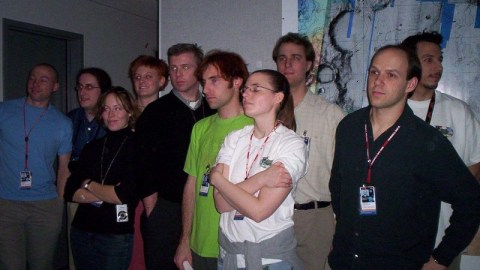
Simply getting into grad school isn’t enough. The answers to these three questions can make all the difference.
It’s time. You’ve done all your research into schools, completed your undergraduate education, lined up your recommendation letters, and taken all of the required tests. Now’s the time: you’re going to apply to graduate school. You’ve weighed the pros and cons, and thought about the workload you’ll need to put in to be successful in this academic endeavor. You’ve decided to make it happen for yourself, and you put yourself into a position to get accepted.
But the biggest question that will define your graduate experience still looms: where will you choose to go? Ideally, you’ll wind up in a place where you’ll get the education you’re seeking, where you’ll work on projects you’re excited to work on, and where you’ll enjoy spending multiple years of your life during some of your most important years (from an academic perspective). If you can successfully answer just three questions, you’ll set yourself up for making the best possible decision.
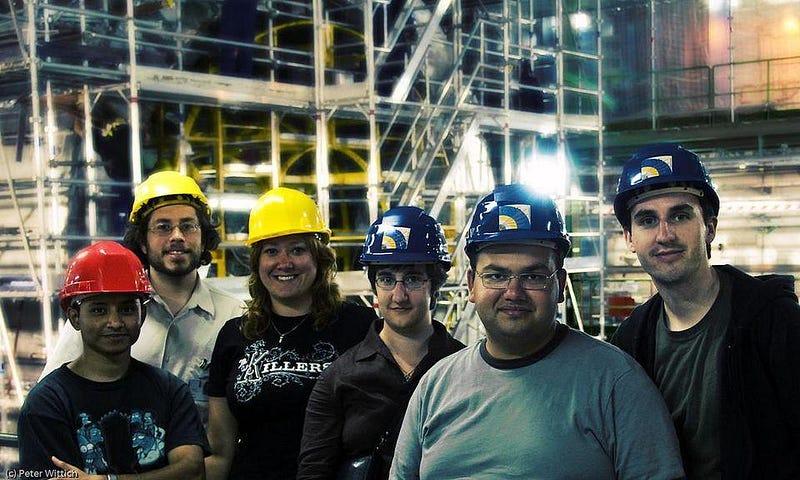
Graduate school isn’t the right decision for everyone, but it might be the right decision for you. You might be going because of the career opportunities a degree will open up; you might be going because it’s a necessary stepping-stone to your ultimate goal; you might be going because it will fulfill a dream that you have; you might even be going because it seems like the logical continuation of what you did as an undergrad, and you don’t know what else to do next.
Everyone has their own reasons, but the people who tend to make it all the way through have one of the following two motives.
- Either you love studying what you intend to research, and want to keep on doing it as long as someone will pay you to do it,
- or there’s something that you simply must learn, where you simply won’t be fulfilled in life if you don’t know it.
If one of those reasons describes that feeling deep down in your gut, there’s no denying that grad school might be exactly what you need in life.
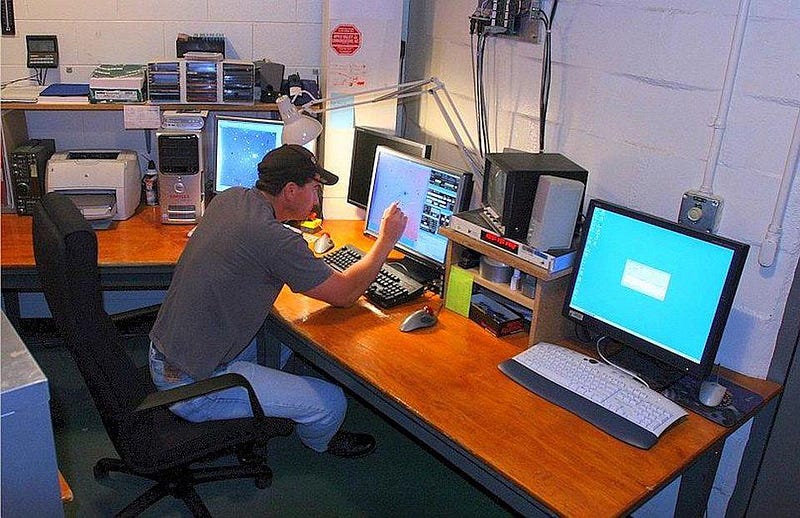
Once you decide to apply, there’s some excellent advice that generically extends to any applicant, although your particular mileage will vary. Make sure your financial situation won’t collapse: defer your student loans (and make sure your interest doesn’t accrue if they’re subsidized loans), and ensure you have the time to put into the work, including homework. (50+ hours/week are standard in physics/astronomy; your program may vary.)
I’d recommend that you apply to 6-to-8 grad schools, where at least 2 are safety schools (that you’re pretty certain you’ll get accepted into), 2 are target schools (where your mentors and recommenders think you have a good, but not certain, chance of getting accepted into), and 2 are reach schools (where if you got in, you’d be overjoyed, but you might not expect it). No matter how it shakes out, if you follow this advice, you’ll still have options.
Once you know where you’ve been accepted to, you’ll have the ultimate decision to make: which school to attend. This is the moment you need to begin asking yourself these 3 key questions.
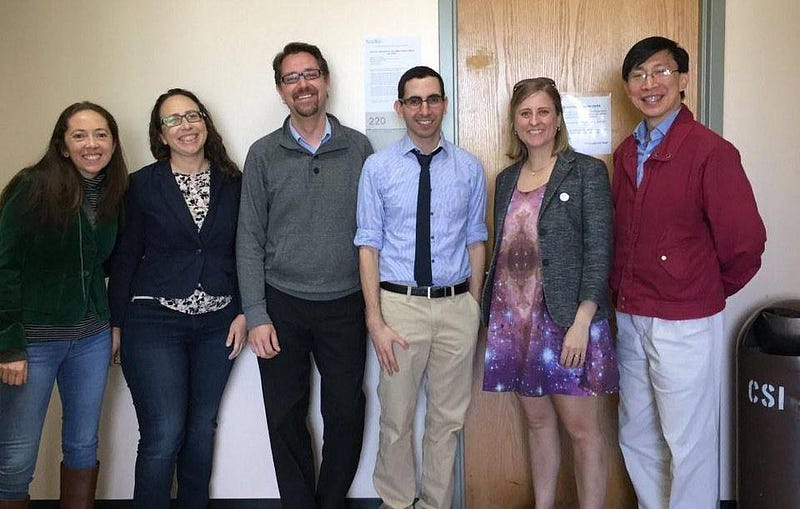
1.) Does this department have the overall strength to give me the educational foundation I need? In practically every graduate program, there are a series of core courses that every student takes, a series of elective courses that you’ll begin to take as you become more specialized, and research you must perform as part of your degree program.
The courses you take will lay the foundation for your future research, and the formal and informal conversations and inquiries you have and conduct with everyone in your department — peers, postdoctoral researchers and professors — will be instrumental in giving you the breadth and depth you need to succeed in your future endeavors. That’s why it’s vital to choose a program whose overall strength and intellectual diversity are well-suited to your educational goals.
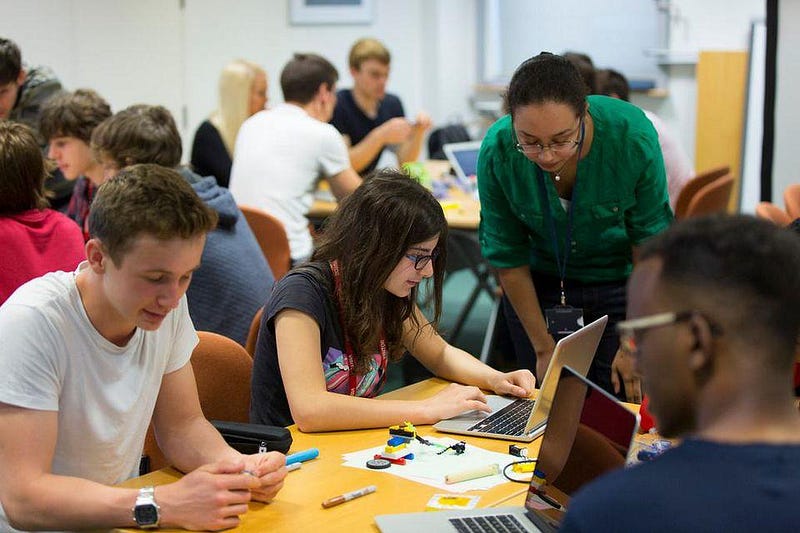
Here are some things you may want to examine:
- What do the syllabus and curriculum for the core courses look like? Are they sufficiently challenging that they’ll teach you what you need to learn?
- Which textbooks do the various courses use? If they’re not more advanced than the ones you took as an undergrad, you’re not going to be sufficiently challenged.
- When you speak with the professors/researchers in the fields you’re most interested in, can you see yourself approaching them and having lengthy, enjoyable conversations with them about their research and the subject matter in general?
While your advisor may be the most important person to your graduate education, the overall strength of the department is something important that you must not underestimate. If you feel you wouldn’t be adequately challenged, or that your education would have substantial gaps at a particular school, that’s probably not the right fit for you.

2.) Is there at least one professor here that I can see myself working with in an advisor/advisee relationship? Whether you know exactly what you want to specialize in or not, you should have an idea of whom you might like to work with in graduate school in an advisor/advisee capacity.
You must make sure you meet these people before you accept the offer. The rapport you establish with those first conversations is your best indicator of whether you’re going to be able to successfully work with this person. When you speak with them, do they meet you where you are? Do they make you excited and curious, or do they treat you like you and your questions are unworthy of them?

There are many questions you should ask any potential advisors, including:
- Are you taking on new students right now? (If the answer is no, they’re not going to be your advisor.)
- What are you currently working on, and/or interested in working on? (Just because they once worked on something you’re interested in doesn’t mean that they’re still interested in working on that topic.)
- What sort of books, papers, or materials should someone interested in your research field be familiar with to get a jump on graduate school? (Learning what sort of material they’d start you off with will give you a feel for what type of work you’ll be doing, at least at the start.)
Finding an advisor that you can build a good working relationship with is arguably the most important decision a graduate student can make, and a poor fit can lead to disaster. Trust your gut on this one: if you feel that the person you have in mind isn’t a good fit for you, you’re probably right.

3.) Can I enjoy living in this location for the next few (4–7, generally, for a physics/astronomy Ph.D.) years? This is an underappreciated aspect of graduate education: the fact that you’ll be living in the location of your institution for many years as you complete your studies. Is this a place you can live and enjoy your life for the typical duration of your degree program?
Think about what sorts of activities you’re likely to engage in, including what’s around that energizes or restores you. Think about what you’re looking for in terms of night life, nature, arts and culture, athletics, and even weather. We all need a work-life balance, and even if graduate school is your work, you will want to have a well-adjusted, enjoyable life outside of your work, and someone who’s at home in Boston, MA might flounder in Columbus, OH, while someone who loves Columbus might be lost in Austin, TX.

If you ask yourself these three questions, and can unequivocally answer “yes” to all three, congratulations: you’ve found a potential fit! There’s no one right answer that’s going to fit all people equally, and knowing that:
- you’ve found a department that’s going to give you the opportunity for a challenging, comprehensive, top-tier education,
- you have at least one highly viable person in mind as your potential advisor/supervisor, the single most important person in your studies,
- and you believe you’ve found a location where you can happily live (or at least survive) for the duration of your program.
There’s only one surefire way, however, to get the honest assessment you need to be able to make that decision. If you’re seriously considering going to graduate school, especially for a Ph.D. program, it’s absolutely worth it — even if you have to pay for the trip yourself — to visit your final-choice schools in person.

Only by going yourself can you meet people and speak to them. But don’t limit yourself to the faculty. Talk to the students, especially to the 1st and 2nd year students, to get a feel for the overall department. Talk to the senior students who work for professors you’re considering. And if you’re a woman, person of color, LGBTQ+, or any other underrepresented minority, talk to others at all levels to voice and share your concerns.
Graduate school is about you growing your mind in a very specific direction. It provides you with a tremendous opportunity to turn hard work into useful problem-solving skills. But you can only do that successfully if you find a comfortable, pleasant, non-toxic environment to work in; if you find yourself in an uncomfortable, unpleasant, toxic place years into your graduate career, it can be very a difficult challenge to overcome.
By asking yourself the right questions and gathering the relevant information, you can make the best choice available to you with what you know today. When it comes to choosing a graduate school, it’s up to you to advocate for your own interests, which will be known only to you. Do your best to ensure your decision is the smartest one you can make.
Ethan Siegel is the author of Beyond the Galaxy and Treknology. You can pre-order his third book, currently in development: the Encyclopaedia Cosmologica.





